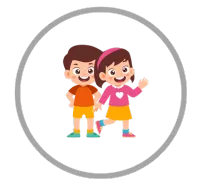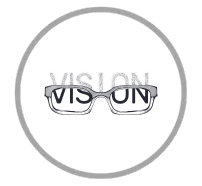Vision Therapy
Vision Therapy Options for Adults
FSDAVCFEBFEVSDDVFSD
FSDAVCFEBFEVSDDVFSD
FSDAVCFEBFEVSDDVFSD
Adults Can Benefit Too
Vision therapy is often associated with children, particularly for treating lazy eye or focusing issues. However, adults with visual dysfunctions can also experience real improvements through targeted visual training. Many people live with symptoms like headaches, double vision, or fatigue while reading without realizing these could be signs of underlying issues that therapy may improve.
Conditions such as convergence insufficiency and binocular vision dysfunction don’t go away with age. Adults with lingering vision problems—especially those who spend hours on computers—can often benefit from structured therapy. Vision therapy isn’t about correcting eyesight; it’s about training the brain and eyes to work together more effectively.
Vision therapy is often associated with children, particularly for treating lazy eye or focusing issues. However, adults with visual dysfunctions can also experience real improvements through targeted visual training. Many people live with symptoms like headaches, double vision, or fatigue while reading without realizing these could be signs of underlying issues that therapy may improve.
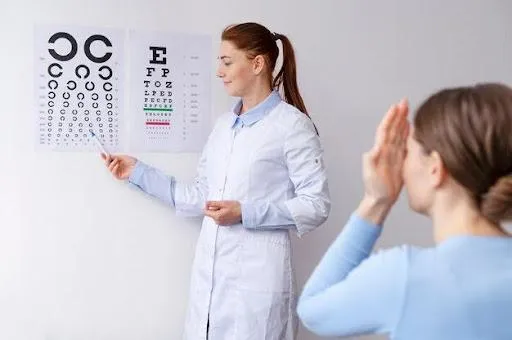
Conditions such as convergence insufficiency and binocular vision dysfunction don’t go away with age. Adults with lingering vision problems—especially those who spend hours on computers—can often benefit from structured therapy. Vision therapy isn’t about correcting eyesight; it’s about training the brain and eyes to work together more effectively.

Common Conditions Affecting Adults’ Vision
One common condition that vision therapy effectively addresses is convergence insufficiency. This occurs when the eyes have difficulty working together at near distances, resulting in symptoms such as blurred vision, eye strain, headaches, and difficulty focusing on close-up tasks. Adults who spend significant time reading or working on computers and screens often find these symptoms disruptive to their daily activities, impacting productivity and comfort.
Another frequent issue is binocular vision dysfunction (BVD), where the eyes are slightly misaligned. This misalignment can cause dizziness, headaches, eye fatigue, and disorientation. NeuroLens therapy is an innovative treatment option that may help by realigning how the brain processes visual information, reducing or eliminating these symptoms. Additionally, post-concussion syndrome often affects visual tracking and coordination, making routine tasks uncomfortable or challenging to perform.
Vision therapy offers hope by focusing on retraining visual processing through a combination of in-office exercises and take-home activities. This therapy helps improve coordination between the eyes and brain, addressing underlying issues rather than just symptoms. For adults dealing with long-standing visual discomfort or dysfunction, vision therapy can provide lasting relief and significantly improve daily visual performance and overall quality of life.
What Vision Therapy Involves Explained
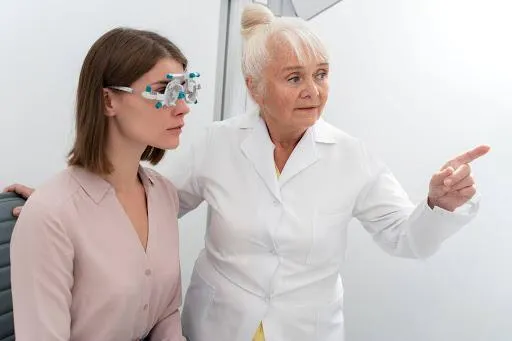
Adult vision therapy begins with a detailed evaluation to determine the exact cause of visual symptoms. Once diagnosed, a customized treatment plan is created to meet the patient’s specific needs. Therapy may include in-office exercises, computer-based programs, prism lenses, and other tools designed to improve visual coordination and processing. These techniques aim to enhance how the eyes and brain work together for better visual performance.
Consistency is key to successful outcomes.

Most therapy programs involve weekly sessions with an optometrist, supported by daily home exercises that reinforce progress. These exercises gradually build visual strength and efficiency over time. While individual results may vary, many adults report noticeable improvements in clarity, focus, and visual comfort within a few weeks to a few months. Vision therapy offers a structured, non-invasive approach to correcting functional vision problems and improving day-to-day comfort and performance.
Unlike corrective lenses, which simply adjust how light enters the eyes, vision therapy works by retraining how the brain processes visual input. This makes it especially effective for adults who have developed poor visual habits over time or are recovering from visual issues caused by injury, illness, or the natural aging process. Rather than compensating for a problem like glasses or contacts do, vision therapy addresses the neurological root of the issue. This approach allows the visual system—eyes, brain, and muscles—to function together more efficiently and comfortably.
As therapy progresses, many adults experience meaningful improvements not just in their eyesight, but in daily performance, focus, and overall confidence. Vision therapy is tailored to the individual and may involve in-office techniques and home-based exercises to reinforce progress. Over time, these activities help patients overcome long-standing visual challenges, reduce eye strain, and improve quality of life. With consistent participation, vision therapy offers lasting results that go beyond the temporary correction provided by glasses or contact lenses.
Long-Term Benefits of Vision Therapy
Successful vision therapy can lead to significant improvements in quality of life for adults. Many who previously avoided reading or close-up work due to discomfort rediscover the joy and focus these activities can bring. Therapy often reduces or eliminates headaches and eye strain, which in turn enhances productivity and overall well-being. Patients commonly report feeling less fatigued during tasks that require sustained visual attention.
Better visual coordination also plays a key role in reducing eye fatigue during extended screen time. Improved eye alignment and depth perception make activities like driving, playing sports, and navigating daily environments easier and safer. These gains contribute to increased confidence and comfort in everyday life. By addressing the root causes of visual problems, vision therapy offers long-lasting benefits that go beyond what glasses or contact lenses can provide. This holistic approach helps adults maintain an active, engaged lifestyle with clearer and more comfortable vision.
Addressing Common Misunderstood Vision Symptoms
Many adults overlook visual symptoms, assuming they aren’t related to eye health. Persistent headaches, motion sensitivity, or difficulty concentrating during visual tasks are often misattributed to stress or fatigue. However, these symptoms frequently originate from underlying vision-related problems that require attention.
A comprehensive evaluation for vision therapy can reveal conditions that standard eye exams might miss.Even those wearing the correct prescription lenses may experience issues like convergence insufficiency or binocular vision dysfunction (BVD).
Many adults overlook visual symptoms, assuming they aren’t related to eye health. Persistent headaches, motion sensitivity, or difficulty concentrating during visual tasks are often misattributed to stress or fatigue. However, these symptoms frequently originate from underlying vision-related problems that require attention.
A comprehensive evaluation for vision therapy can reveal conditions that standard eye exams might miss.Even those wearing the correct prescription lenses may experience issues like convergence insufficiency or binocular vision dysfunction (BVD).


Early diagnosis is crucial for effective treatment and long-term relief.
For individuals recovering from concussions, vision therapy provides structured support to rebuild essential visual skills. By improving eye coordination and tracking, therapy enhances reading ability, motion perception, and overall comfort in visually demanding environments, significantly boosting quality of life and daily function.
Taking the First Step Toward Therapy
If you’ve been living with eye fatigue, double vision, or unexplained discomfort while reading or using digital screens, it may be time to consider vision therapy. Many adults delay seeking treatment because they believe vision therapy is only for children. However, visual rehabilitation is effective at any age and can greatly improve comfort, focus, and daily function by retraining how your brain processes visual information.
The process begins with a comprehensive visual function exam, which goes beyond a typical vision screening to evaluate how well your eyes work together and identify any underlying issues. Based on this detailed assessment, a personalized therapy program is designed specifically to address your symptoms, visual needs, and lifestyle goals, ensuring targeted and effective care.
Vision therapy may include specialized treatments like NeuroLens, which helps correct specific eye misalignments that can cause discomfort or headaches. Other exercises focus on improving eye tracking, flexibility of focus, and coordination between the eyes. These sessions build visual skills progressively, gradually reducing symptoms and making daily activities like reading, computer use, and driving more comfortable and enjoyable.
Successful vision therapy requires patient commitment, consistency, and open communication with your vision specialist. Programs are regularly adjusted based on your progress to ensure continued improvement and address any new challenges. With dedication and proper guidance, many patients experience significant, lasting enhancements in visual clarity, comfort, and overall quality of life, making vision therapy a valuable option for adults experiencing visual difficulties.
Signs You May Need Help
There are several common signs that indicate an adult might benefit from vision therapy. Regular eye strain, especially after reading or prolonged screen use, often means the eyes aren’t coordinating properly. Double vision or the need to close one eye while reading are also important warning signs that shouldn’t be ignored.
Frequent headaches, particularly behind the eyes or temples, can suggest that the visual system is overworked. Difficulty concentrating, skipping lines while reading, or experiencing blurry vision may point to tracking issues or other underlying visual problems that vision therapy can effectively address.

There are several common signs that indicate an adult might benefit from vision therapy. Regular eye strain, especially after reading or prolonged screen use, often means the eyes aren’t coordinating properly. Double vision or the need to close one eye while reading are also important warning signs that shouldn’t be ignored.
Frequent headaches, particularly behind the eyes or temples, can suggest that the visual system is overworked. Difficulty concentrating, skipping lines while reading, or experiencing blurry vision may point to tracking issues or other underlying visual problems that vision therapy can effectively address.
If you’re frequently on the move or prefer not to wear glasses, multifocal contacts offer more freedom and convenience. They provide clear vision at multiple distances without the need for switching glasses, making them ideal for active lifestyles.
If you or someone you know experiences any of these symptoms, it’s important to schedule a comprehensive visual evaluation. Identifying the root cause early helps avoid prolonged discomfort and frustration, allowing for effective treatment. Vision therapy can improve visual comfort, function, and overall quality of life, helping patients perform daily tasks with greater ease and confidence.
Support and Care for Every Age
It’s never too late to improve how your eyes function. Vision therapy offers adults a valuable opportunity to address long-ignored visual issues, recover from injuries, or simply increase comfort during everyday tasks. Many adults suffer from chronic eye fatigue, difficulty focusing, or visual stress without realizing that vision therapy can provide meaningful relief.
Whether you’re coping with post-concussion symptoms, persistent headaches, or eye strain from extended screen time, tailored vision therapy in Houston TX can help restore clarity and confidence in your daily routine. This personalized treatment retrains the brain and eyes to work together more effectively, improving overall visual coordination and reducing discomfort. With expert guidance, customized exercises, and consistent commitment, adults can experience lasting improvements that make reading, working, and other daily activities easier and more enjoyable. Vision therapy empowers patients to regain control over their vision health and enhance their quality of life—contact us to learn more.

Contact Info
Hours of Operation
Mon - Fri | 9:00 AM - 5:00 PM
Sat - Sun | Closed
Holiday Hours: We are closed for the following holidays: New Years Day, Memorial Day, Independence Day, Labor Day, Thanksgiving Day, Christmas Day
© 2026 Kleinwood Vision. All rights Reserved.
